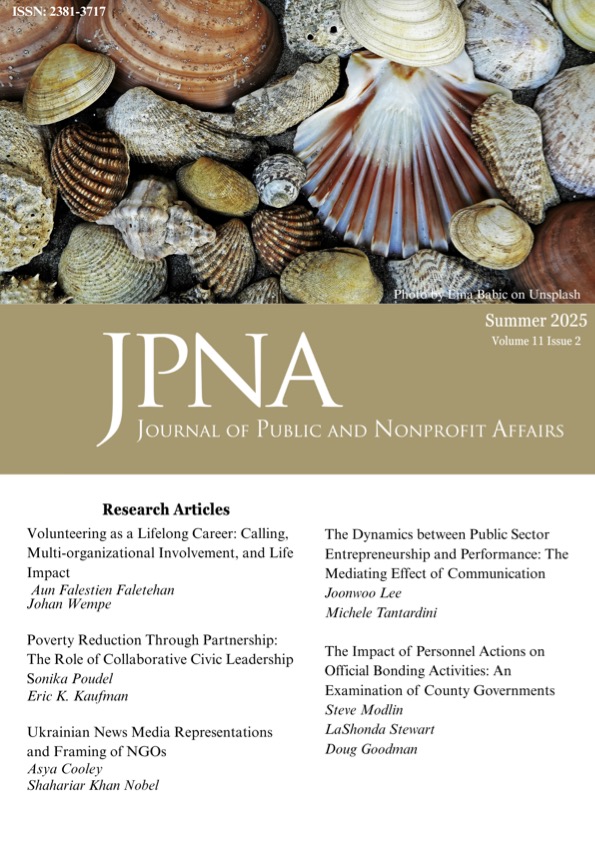Poverty Reduction Through Partnership: The Role of Collaborative Civic Leadership
DOI:
https://doi.org/10.20899/jpna.kdqd0y91Keywords:
Leadership, Poverty, SystemsAbstract
Despite national efforts to address poverty, it remains a significant challenge in the United States. This study focuses on leadership strategies employed by civic organizations in Virginia to address poverty. Using a qualitative approach, the research explores how leadership influences poverty reduction. It studies the existing systemic barriers, organizational dynamics, and leadership approaches that can be most effective in addressing poverty in the communities. Interviews with 14 representatives from various civic organizations reveal three key themes: poverty as a systemic challenge, progress through participatory leadership, and humble leadership as a way forward. Findings suggest that effective poverty reduction requires collaborative efforts, active listening, selflessness, empathy, and community-driven leadership. These insights contribute to understanding how leadership can be leveraged to address complex social issues of poverty and provide a framework for applying these strategies in similar contexts.
Downloads
Published
Issue
Section
License
Authors who publish with this journal agree to the following terms:
- Authors retain copyright and grant the journal right of first publication with the work simultaneously licensed under a Creative Commons Attribution License that allows others to share the work with an acknowledgment of the work's authorship and initial publication in this journal.
- Authors are able to enter into separate, additional, contractual arrangements for the non-exclusive distribution of the journal's published version of the work (e.g., post it to an institutional repository or publish it in a book), with an acknowledgment of its initial publication in this journal.
- Authors are permitted and encouraged to post their work online (e.g., in institutional repositories or on their website) prior to and during the submission process, as it can lead to productive exchanges, as well as earlier and greater citation of published work (see, The Effect of Open Access).







